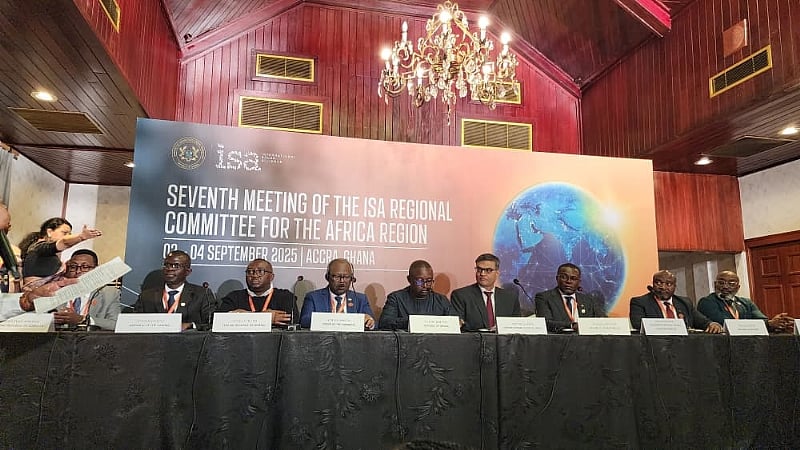Ghana is embarking on a transformative agricultural revolution, spearheaded by the Ministry of Energy’s ambitious plan to deploy solar-powered irrigation pumps nationwide. This initiative, announced by Energy Minister John Abdulai Jinapor, aims to liberate farmers from the constraints of rain-fed agriculture, enabling year-round cultivation and boosting food security, especially in drought-prone areas. The project draws inspiration from India’s successful implementation of similar systems and is being facilitated through partnerships forged under the International Solar Alliance (ISA). Crucially, the initiative prioritizes local capacity building, with agreements in place to train Ghanaian artisans and technicians in the installation and maintenance of these pumps. This focus on skills development ensures the long-term sustainability of the project and contributes to job creation within the country. The rollout of solar irrigation pumps is not merely a technological intervention; it represents a strategic investment in Ghana’s agricultural future, promising increased productivity, enhanced resilience to climate change, and improved livelihoods for farmers across the nation.
This targeted intervention forms part of Ghana’s broader commitment to a green energy transition. The nation aims to integrate renewable energy sources, excluding hydroelectricity, to constitute at least 10% of its energy mix. This ambitious target underscores Ghana’s dedication to sustainable development and its recognition of the critical role renewable energy plays in achieving long-term energy security. Beyond irrigation, the government is actively pursuing the deployment of rooftop solar systems for key institutions and off-grid solutions for underserved communities, further diversifying its energy portfolio and expanding access to clean and reliable power. With a robust existing power infrastructure and a track record of electricity exports to neighboring countries, Ghana is strategically positioning itself as a regional energy hub, leading the way in the adoption and promotion of sustainable energy solutions.
The collaboration with the International Solar Alliance (ISA) is pivotal to Ghana’s renewable energy ambitions. The ISA, a global intergovernmental organization dedicated to promoting solar energy, is providing significant financial and technical support. This partnership extends beyond Ghana, with the ISA committing $200 million to the Africa Solar Facility, a fund designed to stimulate investment in decentralized renewable energy projects across the continent. This substantial investment, starting with an initial $75 million operational by 2025, is expected to catalyze over $800 million in private sector investment, beginning with projects in Nigeria. This demonstrates the ISA’s commitment to accelerating Africa’s energy transition and fostering sustainable development through the widespread adoption of solar energy. The ISA’s investment signifies a significant step towards bridging the clean energy investment gap in Africa and unlocking the continent’s vast solar potential.
The ISA’s support is multifaceted, encompassing not only financial backing but also strategic planning and capacity building. The organization has signed Country Partnership Frameworks with Ghana, Nigeria, and The Gambia, outlining detailed three- to five-year strategies for solar energy expansion. These plans encompass a range of initiatives, from large-scale solar projects to off-grid electrification and the deployment of solar irrigation pumps, tailored to each country’s specific needs and context. Furthermore, the ISA is investing in knowledge transfer and skills development through the establishment of twelve solar technology centers across Africa, including one in Ghana. These centers will serve as hubs for training young professionals, testing solar products, and fostering innovation in renewable energy technologies, further empowering African nations to lead their own clean energy transitions.
The establishment of a Global Capability Centre on Digitization and Artificial Intelligence by the ISA represents a forward-looking approach to leveraging cutting-edge technologies for enhanced efficiency and effectiveness in the renewable energy sector. This center will provide African nations with access to the latest advancements in data analytics, artificial intelligence, and digital solutions, enabling them to optimize their renewable energy strategies and accelerate the integration of clean energy into their power grids. This initiative reflects the ISA’s recognition of the transformative potential of digital technologies in driving the global energy transition and its commitment to equipping African nations with the tools and expertise necessary to harness this potential for their own sustainable development.
The Seventh Meeting of the ISA Regional Committee for the Africa Region, co-hosted by Ghana, served as a platform for showcasing these ambitious initiatives and fostering collaboration among African nations. The gathering brought together ministers, energy leaders, and experts from across the continent, creating a space for dialogue, knowledge sharing, and the strengthening of regional partnerships in the pursuit of a sustainable energy future. The meeting highlighted the growing momentum behind Africa’s energy transition and the crucial role of international cooperation in achieving shared goals. The emphasis on regional collaboration underscores the understanding that a unified approach is essential for maximizing the impact of renewable energy investments and accelerating the transition to a cleaner, more sustainable energy landscape across the entire continent. The meeting, coupled with the concrete initiatives being undertaken by Ghana and the ISA, signifies a significant step towards realizing Africa’s vast renewable energy potential and securing a brighter, more sustainable future for the continent.


